 EARLY CHILDHOOD COMMUNITY EARLY CHILDHOOD COMMUNITY
Ages 3 - 6 years old
Personal identity, self esteem, self discipline, and responsibility become important components of development for the child at ages three to six. Everyday life skills, sensory discrimination, language, writing, math, science, and cultural lessons instill learning curiosity and global understanding.
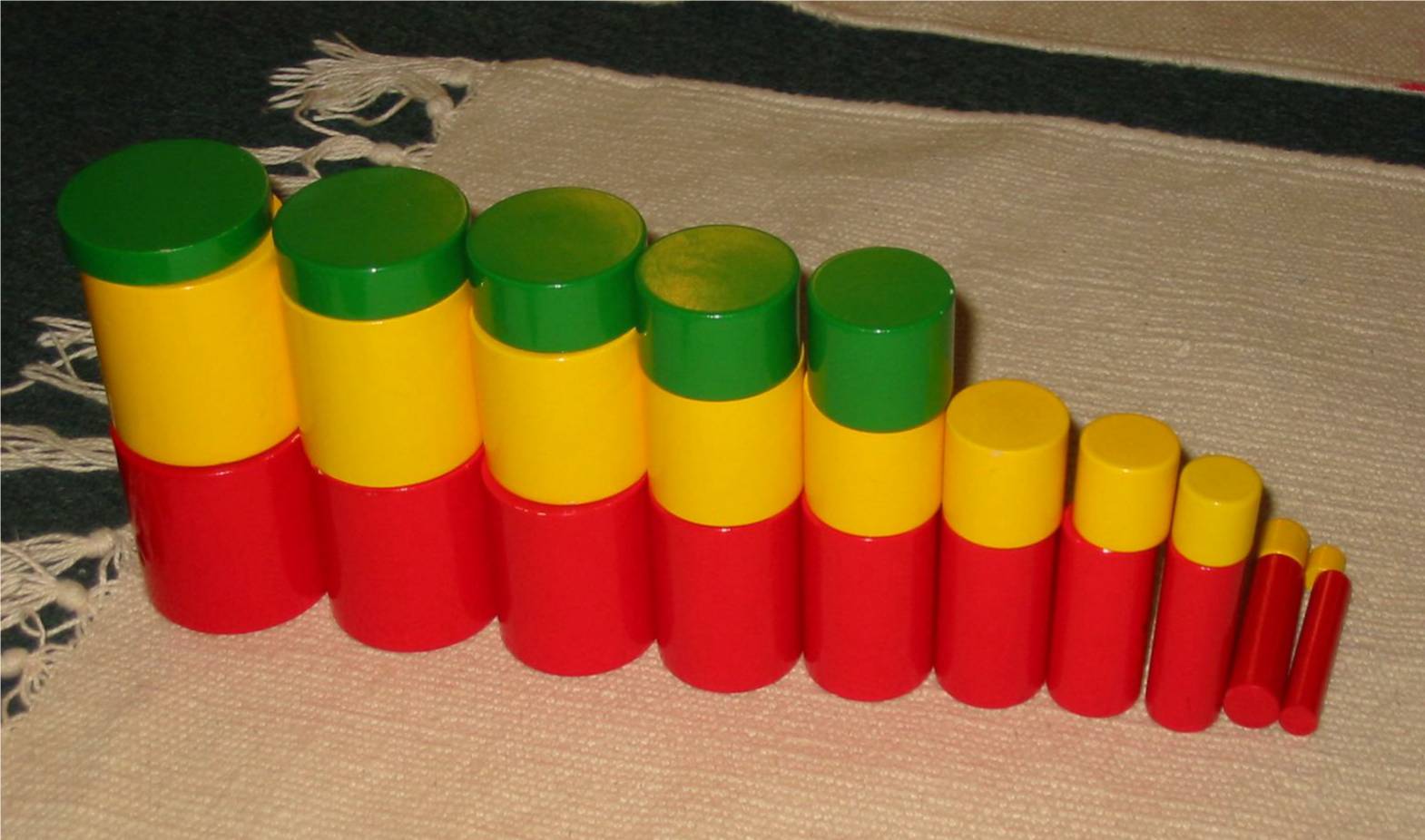
 Children find joy and meaning in purposeful work and activities. “Work” in a Montessori classroom are activities which impart a specific skill, task or concept. Developmentally as children grow through the 3-6 period they are moving from the concrete materials to more abstract reasoning. We stress the importance of the process of the activity rather than the final product. Wonderful learning occurs through observing others, repetition, and, trial and error.
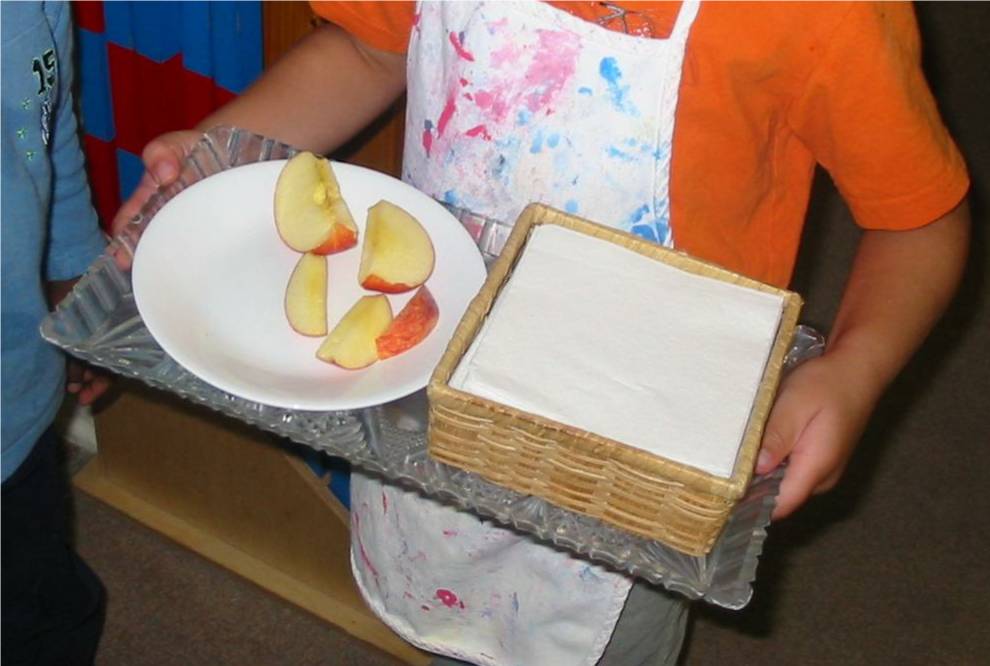 Peer interaction and teaching become an integral part of the learning process in the multi-age classroom. Younger children are motivated by observing the work of an older child. Children become self motivated! Peer interaction and teaching become an integral part of the learning process in the multi-age classroom. Younger children are motivated by observing the work of an older child. Children become self motivated!
Children raised with external rewards come to expect them for completing activities. Intrinsic reward allows a child to become self-motivated and develop self esteem that cannot be met through using external rewards. Intrinsic reward is essential in building life-long learners. Our goal is for children to complete an activity because it is fun, interesting, because the materials are beautiful, or perhaps because an older child in the classroom is doing that activity as well.
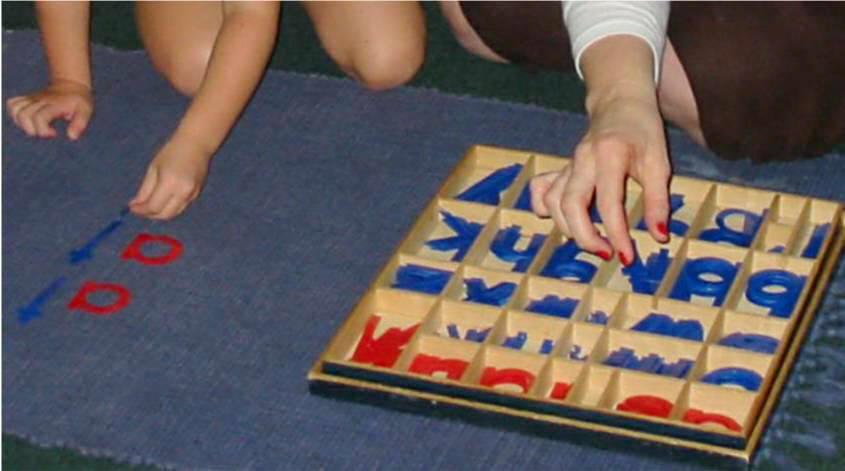
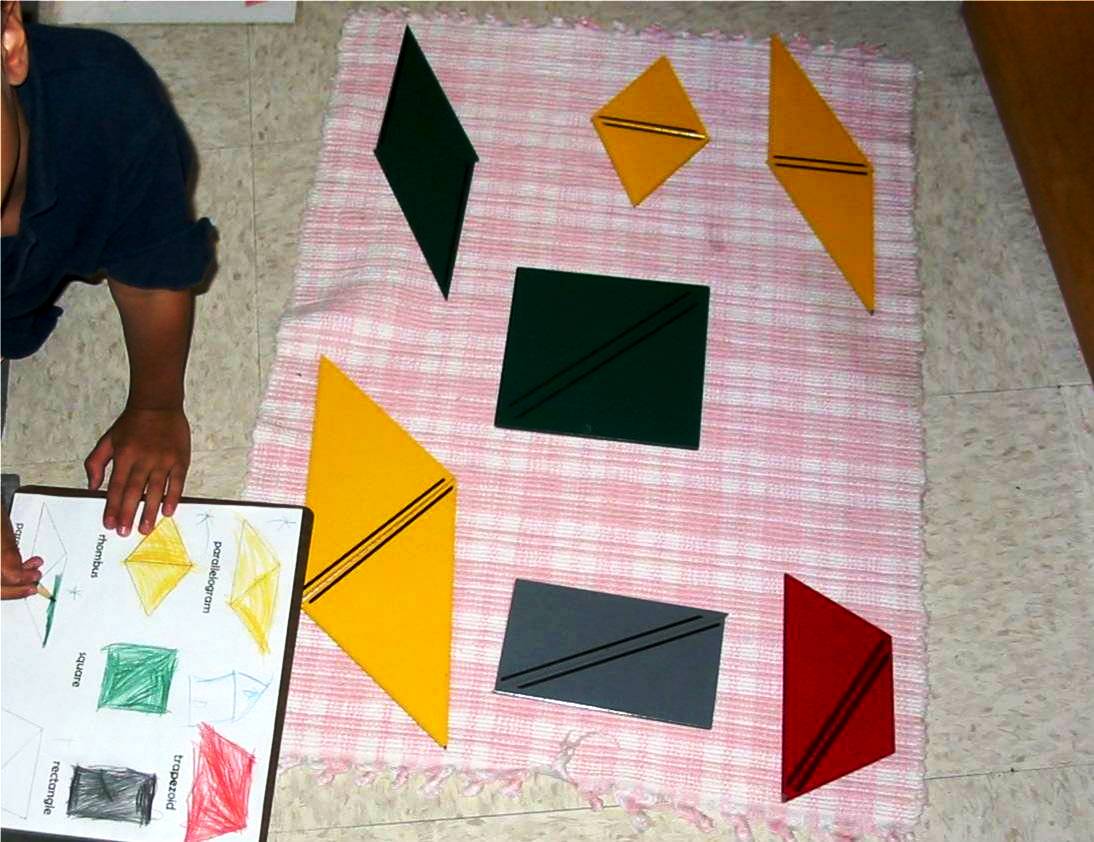
The Montessori teacher or directress provides a carefully prepared classroom conducive to individual and small group learning. 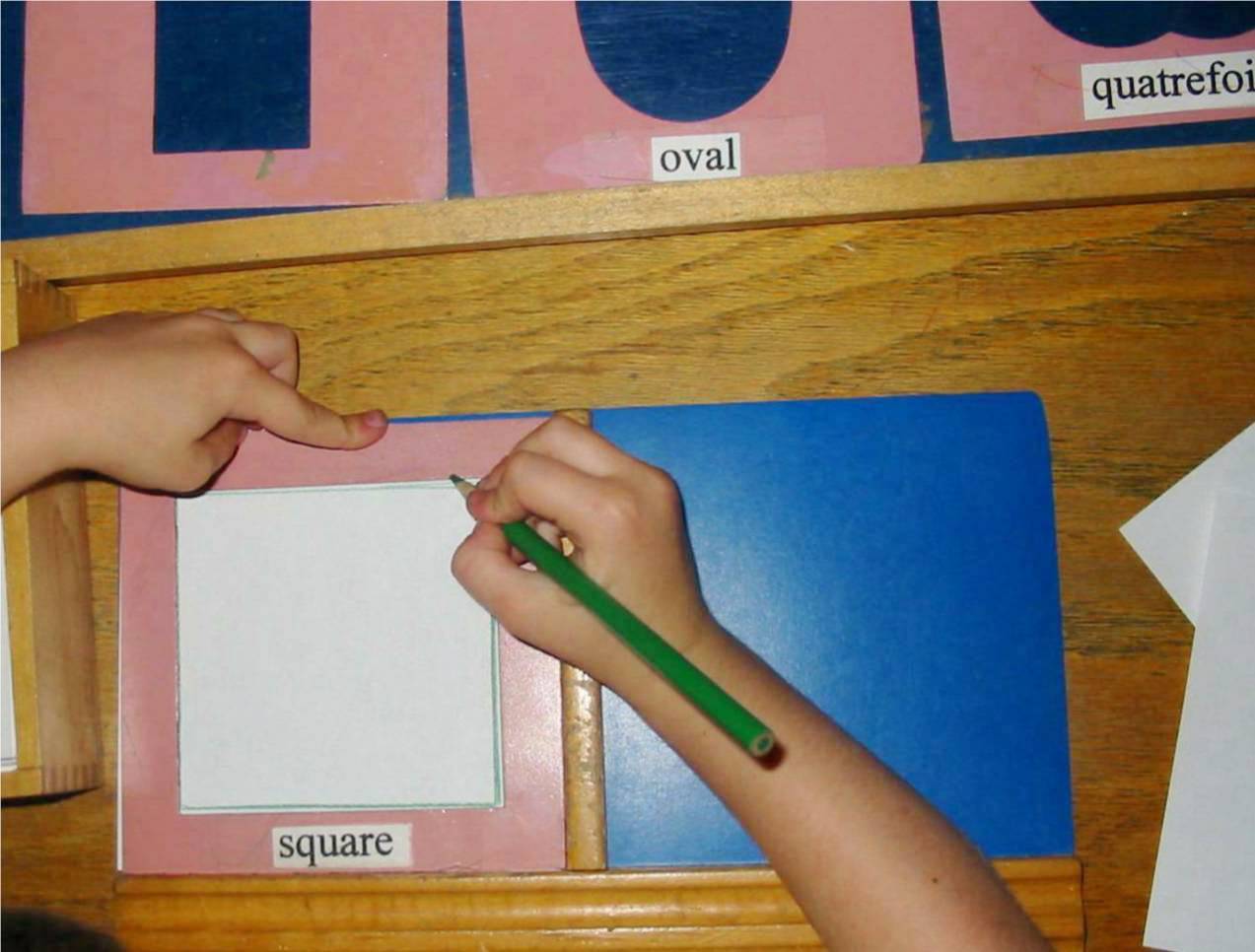 The beautifully designed Montessori materials in a classroom are presented to the child sequentially, from simple to complex and concrete to abstract. . The directress is trained to observe the sensitive periods and developmental needs of the individual child and provide appropriate lessons as needed. The beautifully designed Montessori materials in a classroom are presented to the child sequentially, from simple to complex and concrete to abstract. . The directress is trained to observe the sensitive periods and developmental needs of the individual child and provide appropriate lessons as needed.
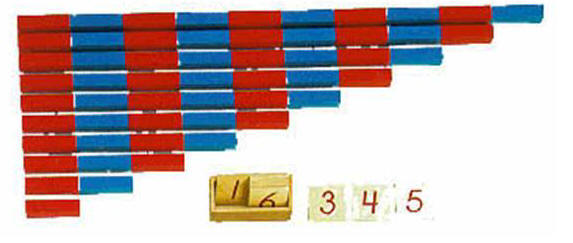
Montessori Early Childhood Education Key Concepts
- Respect for the child
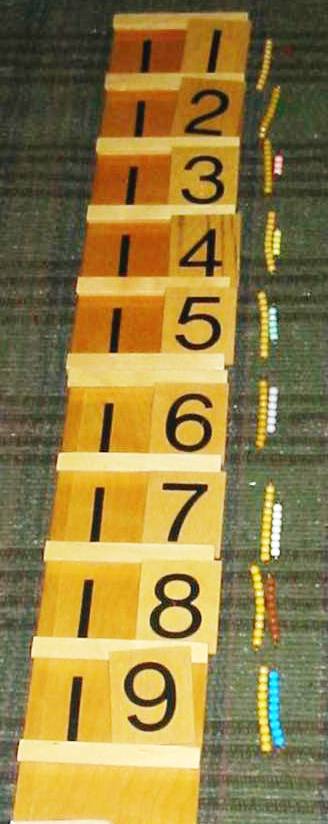
- Respect for one another
- Three year learning cycle
- Cultural Diversity
- Independence and Individuality
- Freedom of Choice
- Peace Promoting
- Prepared environment
- Concrete Learning
- Concentration
- Didactic Materials
- Enjoyment in Working
- Practical Life
- Self Discipline
- Freedom of movement
- Integrated Curriculum
- Sense of Order
- Refinement of the five Senses
- Parents as Partners
- Whole Community approach to learning
- Celebration of Life
- Self esteem
- Aesthetic Awareness
- Montessori Certified staff
- On-going Montessori Child Development for all personnel
"Typical Day" Schedule
| 7:15 a.m. |
School Opens |
| 7:15 a.m. - 9:00 a.m. |
Early Morning Work or Play Period |
| 9:00 a.m. - 12:00 a.m. |
Morning Work Period |
| 12:00 p.m. |
12:00 p.m. Dismissal (Part-day Students) |
| 12:00 p.m. - 12:30 p.m. |
Preparation for Lunch and Lunch |
| 12:30 p.m. - 1:00 p.m. |
Outdoor Environment |
| 1:00 p.m. - 3:15 p.m. |
Nap Time (Younger Students) |
| |
Afternoon Work Period (Older Students) |
| 2:30 p.m. |
Afternoon Dismissal (Part-day Students) |
| 3:30 p.m. - 5:45 p.m. |
Snack |
|
Outdoor Environment |
|
Gross Motor Skills |
|
Arts and Crafts Activities |
| 5:45 p.m. |
School Closes |
|


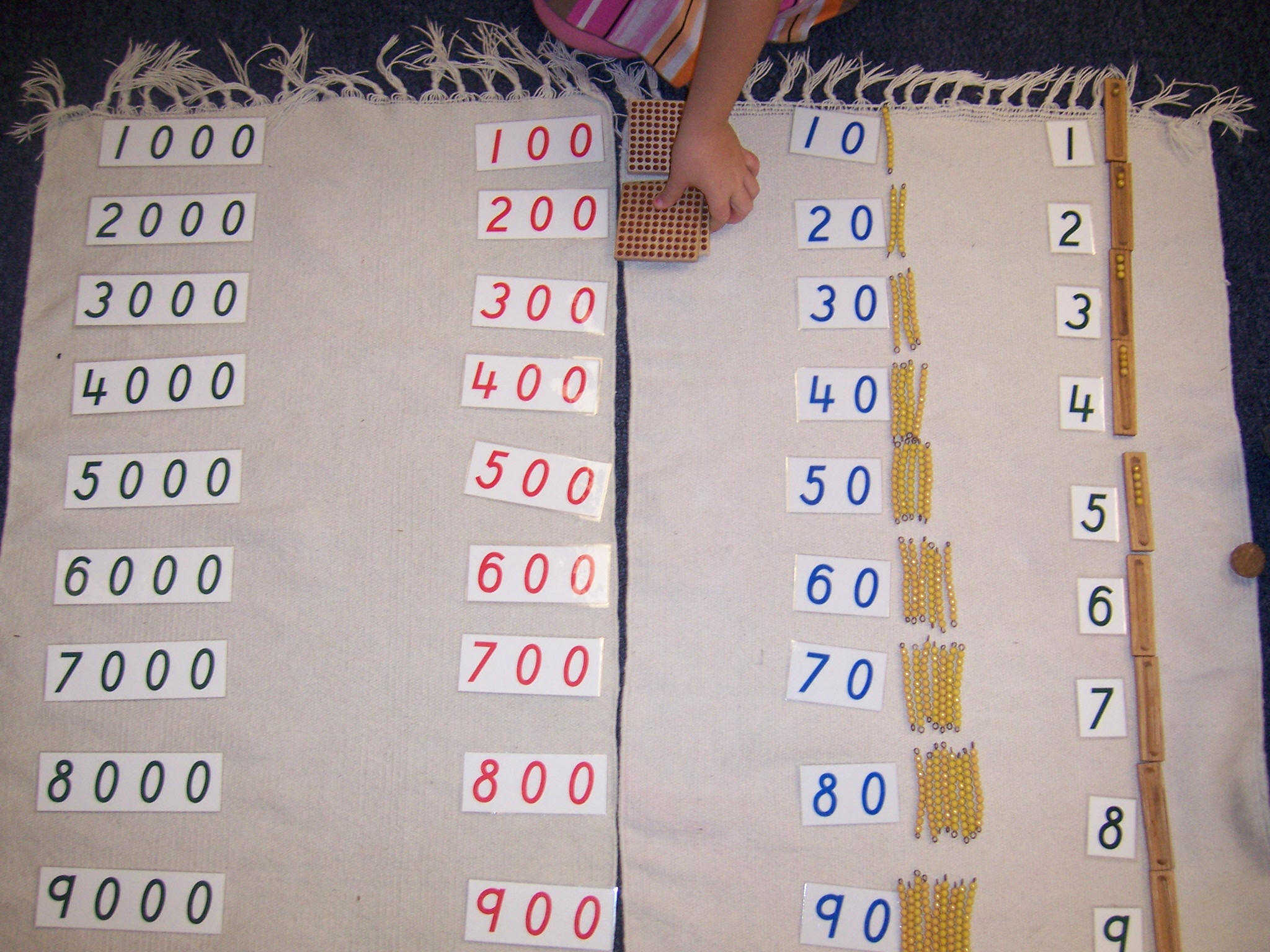

 Peer interaction and teaching become an integral part of the learning process in the multi-age classroom. Younger children are motivated by observing the work of an older child. Children become self motivated!
Peer interaction and teaching become an integral part of the learning process in the multi-age classroom. Younger children are motivated by observing the work of an older child. Children become self motivated!

 The beautifully designed Montessori materials in a classroom are presented to the child sequentially, from simple to complex and concrete to abstract. . The directress is trained to observe the sensitive periods and developmental needs of the individual child and provide appropriate lessons as needed.
The beautifully designed Montessori materials in a classroom are presented to the child sequentially, from simple to complex and concrete to abstract. . The directress is trained to observe the sensitive periods and developmental needs of the individual child and provide appropriate lessons as needed.
